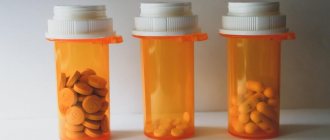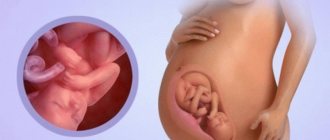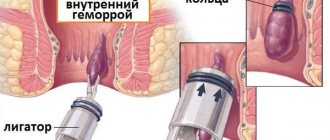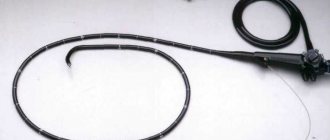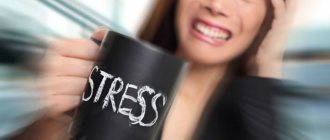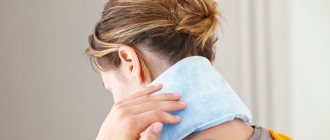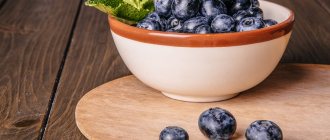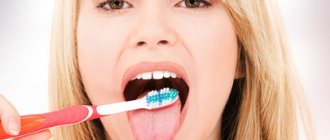Are you worried that there is no urge to go to the toilet? This is a fairly common pathological condition. The normal frequency of bowel movements is considered to be from 1 to 3 times a day. Deviations from the norm are detected in the form of constipation and diarrhea. Certain types of constipation are accompanied by a lack of urge to defecate. The symptom is characteristic of atonic types of constipation. Sometimes, to eliminate constipation, it is enough to introduce fresh vegetables and fruits, dried fruits, as well as various cereals (except rice) and dairy products into the diet.
If there is no urge to go to the toilet, it is important to find out the reasons and begin timely treatment. After all, fecal retention can cause intoxication of the body and problems with the digestive tract.
Why is there no urge to defecate in children?
The cause in babies is an inadequately formed digestive tract. Constipation in young children can occur as a result of an improperly organized diet, non-compliance with the basic principles of feeding, or an incorrect diet of the mother.
If a child receives artificial nutrition, it is necessary to dilute the mixture according to the ratio specified by the manufacturer so that an insufficient amount of water does not cause the baby to have problems with bowel movements.
When the urge to go to the toilet disappears in children, this can be caused by:
- taking certain medications (antibiotics, iron supplements);
- period of teething.
The pathological condition in children is manifested by bloating, pain and discomfort in the peritoneal area, and lack of appetite. The temperature remains mostly normal.
Reasons for the absence of the urge to defecate in adults
Why there is no urge to go to the toilet is a very serious question. As in children, constipation in adults is often caused by diet. If the menu does not include a sufficient amount of foods rich in plant fiber, and the body does not receive the required volume of water per day (the daily norm is up to 2.5 liters), constipation may develop. The condition often appears in people who consume bread and baked goods, polished rice, sausage, cheese, salt products, coffee and cocoa in large portions.
In many patients, the reason for the lack of urge to defecate is physical inactivity. A person leads a sedentary lifestyle, which leads to a decrease in the tone of the intestinal muscles, which are involved in the process of moving the bolus of food, and then feces, in the direction from the duodenum to the rectum. Feces, lingering in the intestines, cause the development of intoxication, since absorption continues, and along with the liquid, harmful chemical compounds enter the bloodstream (lazy intestines). When the patient leads an active lifestyle, contractions of the striated muscles of the limbs and torso activate the activity of the smooth muscles of the intestines, ensuring a normal bowel movement.
The urge to have a bowel movement may also be absent when:
- Ignoring the urge to defecate. If the phenomenon is periodic, then after some time the urge may disappear.
- Regular use of specific groups of medications, especially laxatives. The constant use of these drugs leads to the fact that the patient cannot do without medications.
- Presence of concomitant diseases. The absence of urge is often recorded in case of problems with the endocrine system (diabetes mellitus, hormonal imbalance, thyroid disease). Constipation accompanies diseases of the digestive tract (diverticulosis, adhesions after surgery or inflammatory processes). The urge to go to the toilet may not appear after severe stress and depression, when the nervous system is affected.
- The presence of mechanical obstructions in the intestines. They can be neoplasms, adhesions, scars, hemorrhoids, tumors, polyps. Such changes lead to stretching of the intestinal walls, they lose elasticity - and feces accumulate inside.
- Pregnancy, when the uterus enlarges and the hormonal balance is disrupted. Under the influence of progesterone, smooth muscles relax, causing lazy bowel syndrome.
- Postpartum period, when intestinal motility is reduced. This is due to weakening of the muscles after pregnancy and childbirth.
The condition in adults is manifested by constipation, bloating and a feeling of heaviness in the abdomen, bad breath and decreased appetite, and a feeling of dry mouth. Late signs of pathology can also be dry skin, hair, and brittle nails.
Why does an adult not have the urge to go to the toilet?
Adults have a fully formed digestive system. In addition to pathologies of the gastrointestinal tract, the reason for the absence of stool can be:
- eating disorders;
- deliberately ignoring the urge to go to the toilet (the person endured it);
- problems with the nervous system;
- irritable bowel syndrome;
- psychological “pressures”, for example, someone cannot go to the toilet in an unusual environment;
- insufficient bile production;
- change of water and food;
- lack of physical activity;
- taking painkillers, anticonvulsants, sedatives and other medications;
- hormonal imbalances;
- decreased appetite or lack thereof (a person eats too little to produce enough feces);
- if laxatives are abused, the intestines lose the ability to empty themselves;
- the presence of tumors, adhesions, objects and other mechanical obstacles in the intestine.
These are the main reasons why there is no urge to have a bowel movement.
What to do if there is no urge to defecate?
So how can one induce the urge to go to the toilet, since absence for a long time can cause a deterioration in the patient’s well-being? The patient may complain of flatulence, pain of varying intensity, and weakness. The skin becomes pale, body temperature may rise, and headaches may appear. Fermentation and rotting of food residues are recorded in the intestinal lumen.
A condition is considered dangerous when the absence of the urge to defecate is accompanied by symptoms of intoxication. In such cases, it is necessary to urgently seek medical help. Patients in hospital as first aid undergo gastric lavage using an Esmarch mug. At home, you can do an enema with a large volume of water, adding a small amount of campfire oil to the liquid, which has a laxative effect.
Lack of treatment can cause intestinal obstruction. The problem is solved by urgent hospitalization and surgery, since there is a risk of death.
If constipation occurs periodically, preventive measures, dietary adjustments, and in some cases, the use of drug therapy are required.
Complications resulting from intestinal atony
Stool retention and incomplete defecation for a long period lead to serious dysfunction of organs and systems. Often this condition causes the development of recurrent colitis or damage to the final zone of the gastrointestinal tract.
The absence of defecation also leads to digestive disorders and the occurrence of enteritis as a result of the throwing of solid intestinal mass into the cavity of the cecum. The clinical picture can be complicated by hepatitis, problems with the biliary tract and rectum, and the appearance of neoplasms in the gastrointestinal tract.
Local laxatives
Irritating laxatives are considered one of the most effective medications for constipation. These are usually topical agents that work directly in the rectum. The active components have an irritating effect on the receptors of the mucous membranes. As a result, peristalsis increases, which causes defecation.
Pharmacies offer a wide selection of irritating drugs. The doctor will choose the best option. Eat:
- Glycerin suppositories.
This remedy is traditionally considered one of the safest. The drug is approved for newborns and pregnant women. Glycerin suppositories are inserted into the anus. Glycerol dissolves slowly when exposed to heat and causes smooth muscle contractions. - Bisacodyl. Suppositories act similarly to glycerin suppositories, but this medicine should not be used during pregnancy due to the risk of increasing uterine tone.
- Microlax. This is a popular drug with a lot of positive reviews. It is valued for its complex action. The product is a solution for rectal administration. The liquid simultaneously irritates the intestines and softens the stool.
The main advantage of topical laxatives is the rapid appearance of results. The first urge to defecate is observed within an hour. Complete bowel movement occurs within 6–8 hours.
Doctors warn that irritating agents should not be used constantly. It's addictive. Subsequently, the intestines lose the ability to contract, and a person suffering from constipation cannot do without the necessary medications.
Treatment
If you do not feel the urge to go to the toilet at all, it is not recommended to self-medicate. If defecation is delayed for 3 days, or even more so for a week, you should consult a doctor and, after a thorough examination, identify the cause of the condition. Therapeutic tactics are chosen depending on the cause of constipation.
For treatment use:
- local remedies;
- drugs for oral administration;
- enemas.
Physical therapy and isometric (breathing) exercises are effective.
Diet adjustments
Any type of constipation can be caused by poor nutrition, so it is especially important to plan your diet wisely. This will normalize the functioning of the entire gastrointestinal tract.
Diet for constipation is not
strict. The basic rule is daily consumption of fruits and vegetables. To restore normal frequency of bowel movements, the body requires fiber. Another source of this substance is cereals. You can safely eat any porridge, with the exception of rice. This cereal has the ability to strengthen stool. Rice water is a popular folk remedy for treating diarrhea.
To avoid constipation, it is better to avoid heavy foods, which require a lot of time and energy to digest. Such dishes are smoked meats, as well as everything fatty and fried.
The menu must include fermented milk products. They stimulate the growth of beneficial microflora in the intestines. This ensures normal digestion and excellent prevention of dysbiosis.
The urge to defecate may be absent due to prolonged fasting, which is associated with a small amount of digested food in the intestines. This condition does not require drug treatment; it is enough to adjust the frequency of meals.
Oral medications
Medicines are used in the form of powders, tablets and syrups. Lactulose-based products are considered safe and can be used during pregnancy. They soften feces and facilitate their passage through the intestinal lumen. The effects of such drugs are mild, the effect appears 12 hours after administration.
The drug "Bisacodyl" is prescribed in tablets, but this drug has a number of contraindications; it is not allowed to be used by children and pregnant women.
Doctors also prescribe choleretic medications, the action of which is aimed at normalizing the digestive process and the act of bowel movement. Effective drugs include “Allohol”, “Hofitol”, and herbal mixtures.
To normalize digestion, it is recommended to take the drugs “Bioflor”, “Bifidumbacterin” and its analogues. These products provide the body with bacteria that activate the digestive process. They are used to treat patients after strict diets or during the postpartum period.
Problems with stool during pregnancy
While expecting a baby, expectant mothers often complain that they have no urge to defecate. This can be caused by many reasons. It is necessary to consult a specialist, since the list of drugs approved for use in this situation is limited.
Only a doctor can select a laxative. Usually, either glycerin suppositories or lactulose-based preparations are prescribed.
Constipation is a dangerous condition. The absence of urges does not mean that the body does not need to excrete feces.
Special diet
If there is no urge to go to the toilet, everyone should know what to do. Following a diet and adjusting the diet are mandatory conditions for restoring normal bowel movements, especially with chronic constipation.
The daily menu should include foods rich in fiber (vegetables, fruits), as well as foods that have a laxative effect (bran bread, dried fruits, nuts). It is recommended to consume foods containing organic acids (citrus fruits, sauerkraut, fermented milk products). Fish oil is also useful. You need to drink about 2.5 liters of fluid per day.
Heavy and difficult to digest foods, foods low in fiber (flour products, rice, potatoes) should be excluded from the diet; foods that cause flatulence (legumes, sorrel, white cabbage) should not be consumed.
When there is no urge to go to the toilet, this may be a signal of a serious illness. Ignoring pathology or self-medication can lead to aggravation of the patient's condition. In some cases there is a risk of serious complications.
Changing food
A prerequisite for restoring the process of defecation is adherence to a rational diet. She is not strict and simple. If constipation has become chronic, then changing the menu is the only way to restore bowel function.
The diet is based on the following rules:
- enriching the diet with fiber, which is found in cereals (except rice), fresh fruits and vegetables;
- consumption of foods that have a laxative effect and stimulate intestinal motility (dried fruits, sugars, nuts, wholemeal bread);
- eat foods containing organic acids: all fermented milk, sauerkraut, citrus fruits;
- add PUFAs (polyunsaturated fatty acids), which are found in vegetable oils and fish oil, to the diet;
- drink plenty of fluids;
- exclude heavy and poorly digestible foods: smoked, fatty, rich;
- it is advisable to eat less or completely eliminate low-fiber foods: rice, potatoes, noodles;
- avoid foods that stimulate gas formation processes (legumes, fresh cabbage, sorrel, etc.).
Another important condition for preventing constipation is sufficient physical activity. Minimum level – 30 minutes daily .
Swimming, walking, and cycling are considered optimal. When moving, the core muscles contract, the abdominal muscles actively work, the intestines are affected, and their activity is stimulated.
